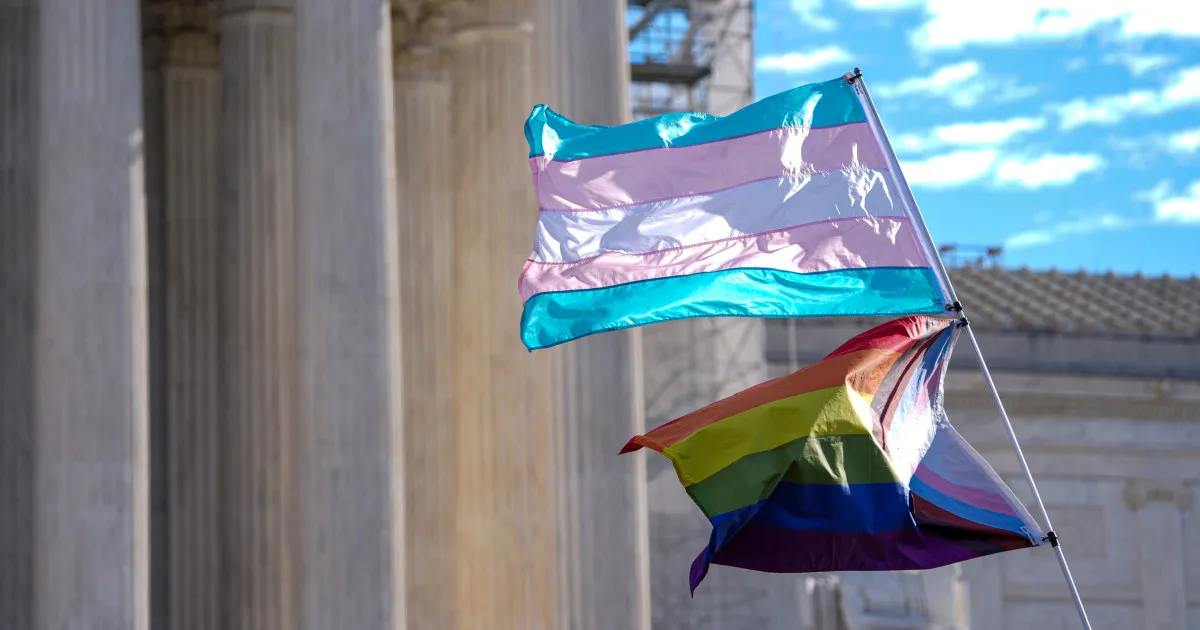
On Thursday, the Supreme Court waded into a significant legal conflict regarding state laws that prohibit transgender athletes from competing in girls' and women's sports at the school and collegiate levels. The court has agreed to hear cases arising from West Virginia and Idaho, involving two transgender students, Becky Pepper-Jackson and Lindsay Hecox, who have both challenged these state bans. Their legal battles have garnered attention as they seek to overturn legislation that they argue discriminates against them based on their gender identity.
Becky Pepper-Jackson, now 15, is currently undergoing puberty blocking medication, while 24-year-old Lindsay Hecox has received testosterone suppression and estrogen treatments. Both students have won legal injunctions permitting them to continue competing in sports despite the state bans. The Supreme Court's decision to take up these cases comes on the heels of a major ruling that upheld a Tennessee law banning gender-affirming care for minors, raising concerns about the future of transgender rights in the United States.
Joshua Block, a lawyer with the American Civil Liberties Union (ACLU), who is part of the legal team representing both students, emphasized the negative impact of such laws. He remarked, “Categorically excluding kids from school sports just because they are transgender will only make our schools less safe and more hurtful places for all youth.” Block expressed confidence that the lower courts were correct in blocking these discriminatory laws and pledged to defend the rights of all children to participate in sports.
In contrast, West Virginia Attorney General JB McCuskey praised the Supreme Court's involvement, stating, “The people of West Virginia know that it’s unfair to let male athletes compete against women; that’s why we passed this commonsense law preserving women’s sports for women.” The oral arguments for these cases are expected to occur later this year, with a ruling anticipated by June 2026.
Both West Virginia and Idaho have enacted laws that explicitly bar transgender students from participating in girls' or women's sports. Currently, more than half of the 50 states have similar laws in place, but many of these legal challenges remain unresolved. The debate surrounding transgender rights, particularly in the context of sports, has emerged as a divisive issue nationally, influencing recent political discussions and presidential elections.
In February, the National Collegiate Athletic Association (NCAA) announced a policy change that restricts participation in women’s sports to “student-athletes assigned female at birth only.” This move reflects the ongoing tensions surrounding transgender athletes in collegiate sports and the implications for Title IX of the Education Amendments of 1972, which prohibits sex discrimination in education. Pepper-Jackson’s case raises a significant question: do such bans violate the 14th Amendment of the Constitution, which mandates equal protection under the law?
The West Virginia law, enacted in 2021, defines gender based solely on an individual’s reproductive biology and genetics at birth, categorizing a female as someone whose biological sex was determined as female at birth. Similarly, the Idaho law, passed in 2020, asserts that sports designated for females should not be accessible to students of the male sex. Both cases challenge the constitutionality of these laws and their potential infringement on the rights of transgender individuals.
As the Supreme Court prepares to hear these pivotal cases, the implications for transgender rights in sports and beyond remain profound. The Biden administration has proposed guidelines on how Title IX applies to transgender athletes, indicating that blanket bans may be unlawful while allowing for some limitations in competitive sports. Conversely, the previous Trump administration reversed many protections for transgender individuals, exemplified by an executive order titled “Keeping Men out of Women’s Sports.”
Notably, in a significant 2020 ruling, the Supreme Court determined that federal law prohibiting sex discrimination in employment protects LGBTQ individuals, a decision that has faced backlash from conservative groups. However, the court has yet to decide whether this interpretation extends to Title IX, leaving the future of transgender athletes in a precarious position as legal battles unfold.